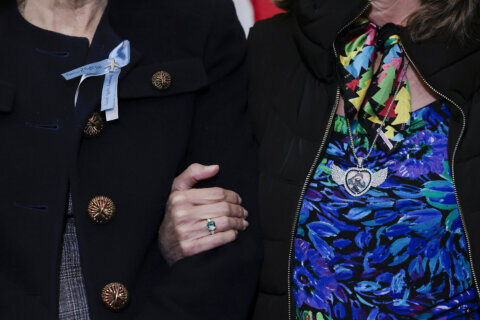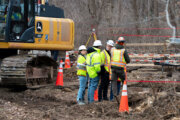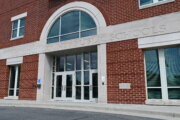Omicron continues to hit the Metro system — and area riders — hard.
“It’s been a very tough period for us, to be frank,” Metro General Manager Paul Wiedefeld told agency board members Thursday. “We have the most COVID cases that we’ve had since the pandemic [began].”
The shortage of drivers has forced Metro to make cuts to bus service, but Wiedefeld hopes those cuts will be reversed soon.
“We’re all hopeful that this spike is going to come down very quickly … if that occurs we will bring back the service as quickly as we can, as soon as those absentee-isms start to soften some,” Wiedefeld said.
His comments came after multiple D.C. council members sent a letter to Metro on Wednesday asking it to restore weekday bus service to normal levels.
Wiedefeld also insisted that “definitely over 85%” of the Metro workforce is vaccinated against COVID-19. When it comes to vaccination, “there are a few people that have not done that, and we’re pressing toward discipline in that case, but that is minute numbers compared to the 13,000 employees that we have,” he said.
Additionally, Wiedefeld revealed that he himself recently battled COVID despite being vaccinated and boosted.
Wiedefeld blamed the omicron variant, in part, for ridership declines on both bus and rail. He told board members that recent numbers show ridership has dropped to 15% to 20% of pre-pandemic levels on rail, and that the number was “in the 30s,” percentage-wise, on bus — a drop in bus ridership that Wiedefeld called dramatic.
By comparison, Wiedefeld said that around Thanksgiving, rail ridership was close to 30% of pre-pandemic levels and bus ridership was near 60%. In addition to blaming omicron, he also attributed the decline to seasonal factors.
But he made no mention of Metro’s ongoing issues with the 7000-series railcars that have sidelined the majority of the agency’s fleet when discussing the drop in ridership.
Wiedefeld announced later Thursday that he will not resume the reintroduction of the 7000-series cars for about 90 days while Metro works on a root-cause analysis for the derailment and identify track-bed technology that would measure wheelsets on the cars.
“Dedicated staff members are working with three outside groups to make sure the new railcars are safe to operate, and we concluded that their efforts to maintain and inspect trains – with maximum capacity getting just five trains back in service each day — isn’t where we need to be focused,” Wiedefeld said.
During that period, Metro will work to introduce more 6000-series cars to the system to increase the number of new cars on tracks and improve reliability, according to Wiedefeld.
Also on Thursday, a Metro board committee voted to approve the name change of the Largo Town Center station to Downtown Largo.
WTOP’s Zeke Hartner contributed to this report.








